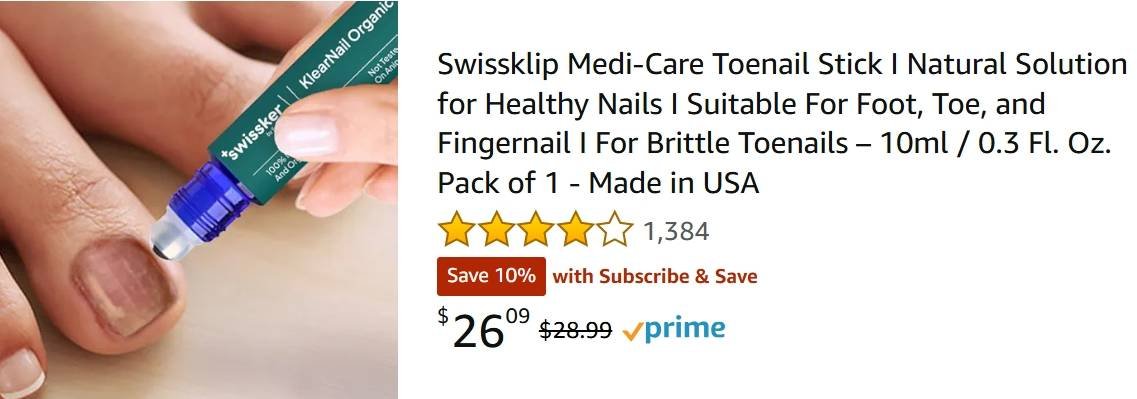Nail Biting: OCD or Anxiety? Unravel the Truth
Find a Podiatrist Near You
Get same-day appointments with verified podiatrists. Insurance accepted.
Nail biting is a common habit, often dismissed as a mere quirk. However, it can be a sign of deeper issues like Obsessive-Compulsive Disorder (OCD) or anxiety.
Understanding the root cause of nail biting is crucial for finding effective solutions. This article will explore whether nail biting is a symptom of OCD or anxiety, provide practical strategies to stop it, and offer insights from recent research.
Understanding the Condition: OCD vs. Anxiety
What is OCD?
Obsessive-Compulsive Disorder (OCD) is a mental health condition characterized by unwanted, persistent thoughts (obsessions) and repetitive behaviors (compulsions). These compulsions are performed to reduce the anxiety caused by the obsessions. For instance, someone might wash their hands repeatedly due to an irrational fear of germs.
- Key Symptoms of OCD:
- Intrusive thoughts
- Repetitive behaviors
- Significant distress or impairment
What is Anxiety?
Anxiety, a broader term, encompasses various disorders such as Generalized Anxiety Disorder (GAD), Social Anxiety Disorder, and Panic Disorder. It involves excessive worry or fear that can interfere with daily activities.
- Key Symptoms of Anxiety:
- Persistent worry
- Physical symptoms like restlessness and fatigue
- Avoidance behaviors

Nail Biting: Symptom of OCD or Anxiety?
Nail Biting as a Symptom of OCD
Nail biting can be a compulsion in OCD, where the individual feels an intense urge to bite their nails to alleviate distressing thoughts. This behavior is often repetitive and linked to specific obsessive thoughts.
Example: A person with contamination fears might bite their nails to reduce the anxiety caused by the thought of germs.
Nail Biting as a Symptom of Anxiety
In anxiety disorders, nail biting is often a generalized response to stress or nervousness. It can occur in various situations, such as during exams, social interactions, or periods of high stress.
Example: A person with GAD might bite their nails during a stressful meeting or when feeling overwhelmed by daily responsibilities.
Health Risks of Chronic Nail Biting
Chronic nail biting can lead to significant health problems, including:
- Infections: Broken skin around the nails can become infected.
- Nail Deformities: Continuous biting can alter the shape and structure of nails.
- Dental Issues: Biting nails can damage teeth and gums.
Practical Solutions to Stop Nail Biting
Identify Triggers
Understanding what triggers your nail biting is the first step to overcoming it. Keep a journal to track when and why you bite your nails. Identifying patterns can help you develop strategies to avoid or manage triggers.
Substitute the Behavior
Find alternative ways to occupy your hands and mouth. Consider using stress balls, fidget spinners, or chewing gum to divert your attention away from nail biting.
Apply Barriers
Use bitter-tasting nail polish or wear gloves to make nail biting less appealing. Physical barriers can help break the habit over time.
Seek Professional Help
If nail biting is severe or causing significant distress, consulting a mental health professional is crucial. They can provide a proper diagnosis and recommend appropriate treatment options.
Treatment Options for Nail Biting
Cognitive Behavioral Therapy (CBT)
CBT is effective for both OCD and anxiety. It helps individuals identify and challenge their thought patterns and develop healthier coping mechanisms.
- Exposure and Response Prevention (ERP): A type of CBT that involves confronting obsessive thoughts without engaging in compulsive behaviors.
Habit Reversal Training (HRT)
HRT involves replacing the nail-biting habit with a more constructive behavior. This technique can be effective for both OCD-related and anxiety-induced nail biting.
Medication
Medications like selective serotonin reuptake inhibitors (SSRIs) can help manage symptoms of OCD and anxiety, reducing the urge to bite nails.
Latest Research and Emerging Therapies
Recent studies have shown that nail biting may be linked to specific neurological pathways. Functional MRI scans reveal heightened activity in brain areas responsible for habit formation and anxiety regulation.
Emerging therapies, such as mindfulness-based interventions, are also showing promise. These techniques help individuals stay present and manage stress more effectively, reducing the compulsion to bite nails.
FAQs:
Can Nail Biting Be a Sign of Other Mental Health Conditions?
Yes, nail biting can also be associated with other conditions, such as Attention Deficit Hyperactivity Disorder (ADHD) and Tourette Syndrome. Consulting a mental health professional for a comprehensive evaluation is essential.
How Long Does It Take to Overcome Nail Biting?
The time it takes to overcome nail biting varies for each person. Consistent efforts and professional guidance can lead to significant improvements within a few months.
Conclusion
Understanding whether nail biting stems from OCD or anxiety is crucial for finding effective solutions. Both conditions have distinct characteristics and require different approaches for treatment. If you’re struggling with nail biting, consider seeking professional help. With the right strategies and support, you can overcome this habit.
Remember, change takes time, and every small step counts. Stay patient and consistent in your efforts, and you’ll see progress. For more insights and support on mental health and wellness, be sure to explore our other resources. Consulting a mental health professional can provide a proper diagnosis and tailored treatment plan.
Ready to See a Podiatrist?
Connect with top-rated podiatrists in your area. Book appointments instantly with verified doctors who accept your insurance.
Same-Day Appointments
Get seen today with urgent care availability
Verified Reviews
Real patient reviews and ratings
Insurance Accepted
Most major insurance plans covered
